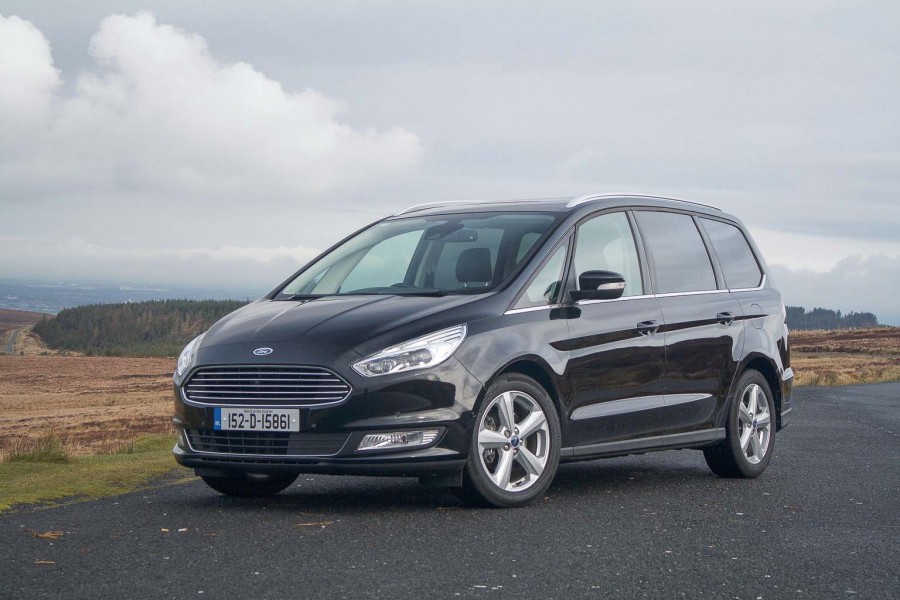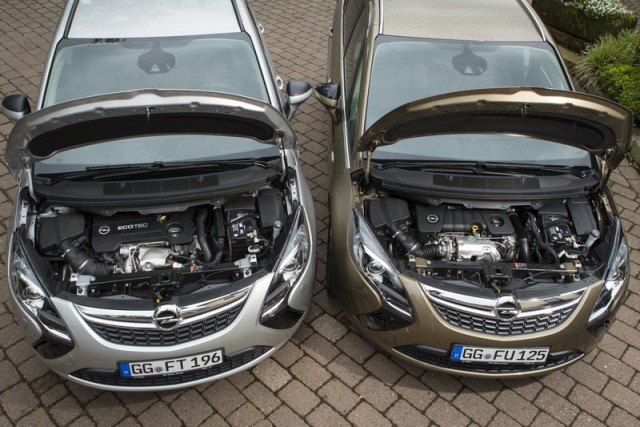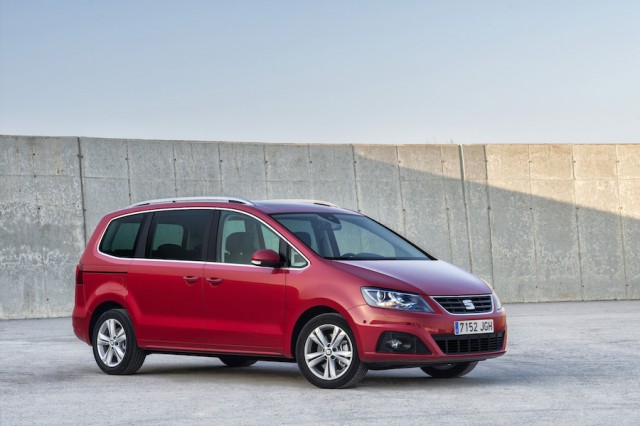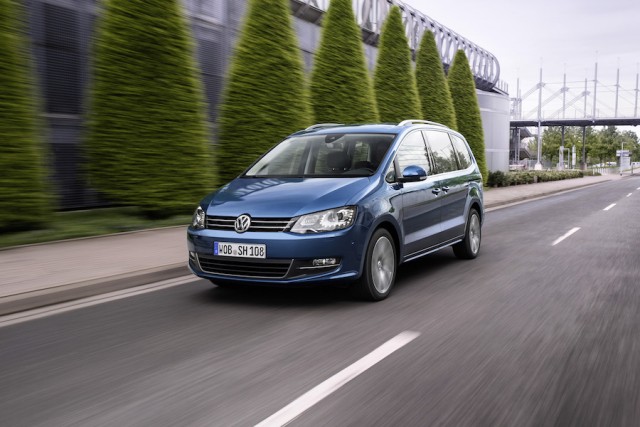Good: colossal space, room for adults in third row, comfort, quality, refinement, steering.
Not so good: expensive in this trim, engine feels underwhelming, fiddly instruments.
There are few, if any, better tests for a car that loading it up for a family holiday. Bags in boot, boosters in back and with the faint hint of Clark W. Griswold about my bearing, we may have been headed for Connemara and Clare instead to Wallyworld, but our journey was to put the Ford Galaxy to a test every bit as extreme as that suffered by the Family Queen Truckster Wagon of National Lampoon's fame.
Now, the Ford Galaxy often gets a bit of short shrift when you're thinking about a large MPV. For a start, it tends to be expensive (and as we shall see, the one we were testing was especially so...). Secondly, it tends to be ignored in favour of its slightly smaller, much sportier brother, the Ford S-Max. Finally, it usually comes off worst in a comparison with the SEAT Alhambra and the Volkswagen Sharan simply because it lacks the sliding doors of those twins.
I'll tell you what though - there may not actually be a finer car into which you can install your family and head off for a trans-Ireland expedition. Now, we only have the two kids (both boys, six and ten since you ask) so we weren't going to trouble much the Galaxy's primary family friendly qualities, which are its seats for seven (with sufficient room in the third row for actual adult occupation, its primary USP over and above the S-Max) and its three Isofix fittings in the rear seat, which gives it a significant advantage in the child lugging stakes.
What we did use, to pretty great effect, was the boot. At 1,300 litres with the third row seats folded away, it's positively cavernous. Even so, we filled it. Two kids and two adults packed for a week on the road (with a birthday party in the middle of it) will do that. This is where the Galaxy shows its worth over and above the S-Max. There's no way we'd have squeezed all of that junk into the S-Max, spacious though it is.
Does the S have a major driving advantage over the Galaxy though? Well, yes and no. The S-Max, thanks to fractionally lower weight, a lower centre of gravity and re-tuned springs and dampers, certainly feels more sprightly than the Galaxy, and reacts a little faster to steering inputs. The taller, bulkier Galaxy does feel a touch more ponderous, but these are relative terms - by almost any standards, the Galaxy feels almost indecently agile and responsive for a large seven-seater. The steering has terrific weight and reasonable feedback, so you can actually enjoy the driving a bit. Our car came with €2,500's worth of adaptive suspension, about which my feelings are mixed. For a start, you can only adjust it once you've worked your way through a couple of menu options in the multi-function instrument binnacle (why not just a button on the centre console? There's space enough for it.) Secondly, the Sport setting is fine, but not really worth the candle. In Normal mode, the Galaxy's responses are still perfectly fine and the Sport setting would only add extra precision in extremis, and what's the point of bringing a big people carrier anywhere near extremis? Comfort mode was the one we mostly stuck to, and as such was excellent - soft, compliant and comfortable although with a bit too much longitudinal pitch on bumpy roads.
The cabin is really very good. As with the S-Max, there are a few patches of unpleasant plastic (especially around the touchscreen and the centre console), but for the most part the sense of quality is very high and the standard of construction very good. I love little touches like the split level cup-holders (with a shallow setting for cans and cups and a deeper one for bottles so that they don't get in the way of gear shifting) and the sheer comfort and support of the seats, even on those long, slow stretches of the Wild Atlantic Way, are just terrific. Space in the back is so impressive that you simply stop thinking about it.
The engine is a little less impressive. With 180hp, you'd expect it to be powerful, and it is, but the 400Nm torque figure is a little disappointing and while the Galaxy always shifts along nicely, even when fully loaded, it just never feels all that exciting. I think the 150hp version would probably do just as well, overall. It might also be a little more economical. We did get to within 2.0 litres per 100km of Ford's quoted figure, but a return of 6.9 litres per 100km (just - and only just - over the 40mpg barrier) seems a little less than stellar. At least it's quiet though, as is the whole car. Even at motorways speeds, the Galaxy is commendably hushed inside, which is impressive when you remember that, acoustically speaking, a mono-volume car body such as this is basically a giant echo chamber.
I have a few more glitches to report. The instruments are as disappointing as they are in the Mondeo and the S-Max. For all their multi-functionality you still can't get a simple large clear digital display of your speed, so you are left squinting at a small analogue dial instead. Of course, there is a way around that (sort of) in the shape of Ford's automatic speed limiter, which is an interesting system. It uses a camera to read speed limit signs and then kills the throttle if you try to go over the limit, allowing you to do so only if you mash the pedal to the carpet. It's a switchable system, so you don't have to use it, but it's far from flawless. Yes, it will neatly and helpfully keep you on the right side of the law, and I did make copious use of it. But it often gets confused by poor signage (the bane of Irish roads), sometimes reading a sign that's actually for an adjacent road, sometimes seemingly just doing its own thing and setting an arbitrary limit. On at least two occasions it set a speed limit that I knew to be too high for the road we were on (once an 80km/h limit on a road I knew to be 50km/h, once 100km/h on a 60km/h road) and on several occasions it read a 50km/h sign on an off-ramp and suddenly started slowing us to that speed on a 120km/h stretch of motorway, which felt downright dangerous to me. Teething troubles I guess, but whatever it is, it's no panacea for speeding.
Whatever the Galaxy is, it can also be quite expensive. Our test car, thanks to nearly €10k worth of fitted options, clocked in at €58k, which is a big price for a Ford; albeit one I'd be far happier to spend on the Galaxy than on a faux-posh Mondeo Vignale. Shorn of those options (and I'd happily live without the adaptive suspension, the power tailgate, the panoramic roof, the electric adjustable steering column and the 18-inch wheels, although I'd quite like to keep the satnav, the forward collision alert, the LED lights and the leather trim) it becomes much more affordable and the good news is that fundamental strengths of space, comfort, refinement and handling sharpness are present and correct on the cheapest €38k model.
I would probably, on balance, still go for an S-Max if it were my money - the sharper styling and driving experience would probably outweigh, for me, the extra space. That said, there's little doubt of the Galaxy's surfeit of impressiveness. For any car to take on a family holiday and emerge with reputation and body panels intact is no mean feat; and the keys were returned with no small reluctance.


































